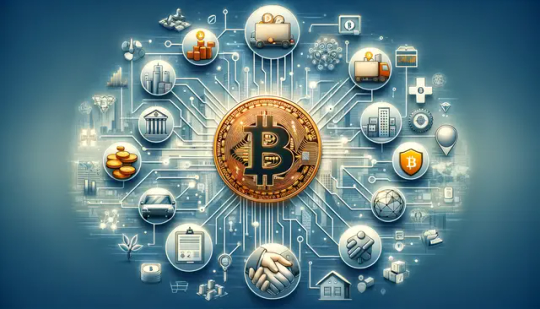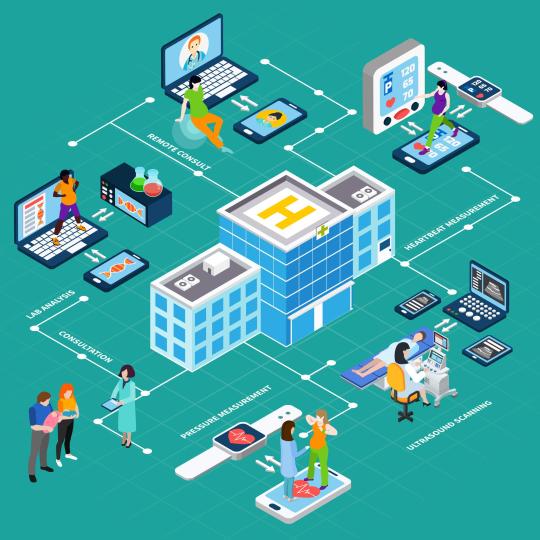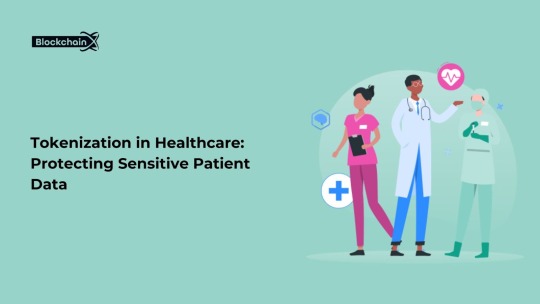#blockchain and healthcare
Explore tagged Tumblr posts
Text
Unlocking the Future: How Blockchain and AI Are Teaming Up for Innovative Solutions






#Blockchain#AI#Artificial Intelligence#blockchain and AI#blockchain in finance#AI in healthcare#blockchain gaming#NFTs#supply chain#blockchain security#AI data analysis#blockchain technology#AI applications#blockchain in education#blockchain in gaming#AI in business#blockchain energy use#AI environmental impact#blockchain transparency#AI learning#blockchain finance innovation#blockchain and healthcare#AI in jobs#blockchain future#AI-powered#blockchain ledger#AI machine learning#AI personalization#blockchain secure transactions#AI fraud detection
0 notes
Text
The Disruptive Potential of Cryptocurrency, Blockchain, and DLT
Cryptocurrency, blockchain, and Distributed Ledger Technology (DLT) have been disrupting industries and challenging traditional business models since their inception. These technologies have the potential to revolutionize the way we do business, interact with each other, and even govern ourselves. In this blog post, we will explore the disruptive potential of cryptocurrency, blockchain, and DLT.
Cryptocurrency
Cryptocurrency, such as Bitcoin and Ethereum, is a decentralized digital currency that uses cryptography to secure transactions and control the creation of new units. Cryptocurrency has the potential to disrupt traditional financial systems by providing a more secure and transparent way to transfer value. Cryptocurrency eliminates the need for intermediaries, such as banks, and can help reduce transaction fees and increase financial inclusion.
Blockchain
Blockchain is a distributed ledger that records transactions in a secure and transparent way. Each block in the chain contains a cryptographic hash of the previous block, creating an immutable record of all transactions on the network. Blockchain has the potential to disrupt a wide range of industries, including finance, healthcare, and supply chain management. Blockchain can help increase transparency, reduce fraud, and improve efficiency.
Distributed Ledger Technology (DLT)
DLT is a type of database that is distributed across a network of computers. Each computer in the network has a copy of the database, and any changes to the database are recorded in a transparent and immutable way. DLT has the potential to disrupt a wide range of industries, including finance, healthcare, and government. DLT can help increase transparency, reduce fraud, and improve efficiency.
Disruptive Potential
The disruptive potential of cryptocurrency, blockchain, and DLT is significant. Here are some of the ways that these technologies could disrupt traditional industries: Finance Cryptocurrency and blockchain have the potential to disrupt traditional financial systems by providing a more secure and transparent way to transfer value. Cryptocurrency eliminates the need for intermediaries, such as banks, and can help reduce transaction fees and increase financial inclusion. Blockchain can also help reduce fraud and increase transparency in financial transactions. Healthcare
Blockchain and DLT have the potential to disrupt the healthcare industry by providing a more secure and transparent way to store and share patient data. Blockchain can help increase patient privacy and reduce the risk of data breaches. DLT can also help improve the efficiency of healthcare systems by reducing administrative costs and improving supply chain management.
Government
DLT has the potential to disrupt traditional government systems by providing a more secure and transparent way to store and share data. DLT can help increase transparency and reduce fraud in government transactions. DLT can also help improve the efficiency of government systems by reducing administrative costs and improving data management.
Conclusion
Cryptocurrency, blockchain, and DLT have the potential to disrupt traditional industries and revolutionize the way we do business, interact with each other, and even govern ourselves. These technologies offer a more secure and transparent way to transfer value, store and share data, and reduce fraud. As these technologies continue to evolve, we can expect to see more innovative solutions emerge that have the potential to disrupt traditional industries even further.
#Cryptocurrency#blockchain#DLT#disruption#finance#fintech#Cryptocurrencies#BlockchainTechnology#DistributedLedgerTechnology#FutureOfFinance#DigitalCurrency#FinancialInclusion#Healthcare#HealthTech#blockchaininhealthcare#patientdata#government#govtech#blockchainingovernment#transparency#innovation#technologydisruption#revolutionizingindustries
44 notes
·
View notes
Text
Understanding Blockchain Technology: Beyond Bitcoin

Introduction
Blockchain technology, often synonymous with Bitcoin, is a revolutionary system that has far-reaching implications beyond its initial use in cryptocurrency. While Bitcoin introduced the world to the concept of a decentralized ledger, blockchain's potential extends well beyond digital currencies. This article explores the fundamentals of blockchain technology and delves into its various applications across different industries.
What is Blockchain Technology?
At its core, blockchain is a decentralized, distributed ledger that records transactions across many computers in such a way that the registered transactions cannot be altered retroactively. This ensures transparency and security. Each block in the chain contains a list of transactions, and once a block is completed, it is added to the chain in a linear, chronological order.
Key features of blockchain include:
Transparency: All participants in the network can see the transactions recorded on the blockchain.
Immutability: Once data is recorded on the blockchain, it cannot be altered or deleted.
Security: Transactions are encrypted, and the decentralized nature of blockchain makes it highly secure against hacks and fraud.
Blockchain Beyond Bitcoin
While Bitcoin brought blockchain into the spotlight, other cryptocurrencies like Ethereum and Ripple have expanded its use cases. Ethereum, for example, introduced the concept of smart contracts—self-executing contracts where the terms are directly written into code. These smart contracts enable decentralized applications (DApps) that operate without the need for a central authority.
Applications of Blockchain Technology
Finance:
Decentralized Finance (DeFi): DeFi platforms leverage blockchain to create financial products and services that are open, permissionless, and transparent. These include lending, borrowing, and trading without intermediaries.
Cross-border Payments: Blockchain simplifies and speeds up cross-border transactions while reducing costs and increasing security.
Fraud Reduction: The transparency and immutability of blockchain make it harder for fraud to occur, as all transactions are visible and verifiable.
Supply Chain Management:
Tracking and Transparency: Blockchain provides end-to-end visibility of the supply chain, ensuring that all parties can track the movement and origin of goods.
Reducing Fraud: By recording every transaction, blockchain helps prevent fraud and counterfeiting, ensuring the authenticity of products.
Healthcare:
Secure Data Sharing: Blockchain allows for secure sharing of patient data between healthcare providers while maintaining privacy and consent.
Drug Traceability: Blockchain helps track pharmaceuticals through the supply chain, reducing the risk of counterfeit drugs.
Voting Systems:
Secure Elections: Blockchain can provide a transparent and tamper-proof system for voting, ensuring that each vote is recorded and counted accurately.
Increasing Voter Participation: The security and convenience of blockchain-based voting could lead to higher voter turnout and greater confidence in electoral systems.
Real Estate:
Property Transactions: Blockchain can streamline property transactions by reducing paperwork, ensuring transparency, and preventing fraud.
Record-Keeping: Immutable records of property ownership and transactions enhance security and trust in the real estate market.
Challenges and Limitations
Despite its potential, blockchain technology faces several challenges:
Scalability: The ability of blockchain networks to handle a large number of transactions per second is limited, impacting its adoption in high-volume industries.
Energy Consumption: Blockchain, particularly proof-of-work systems like Bitcoin, requires significant energy, raising concerns about its environmental impact.
Regulatory Challenges: The decentralized and borderless nature of blockchain poses regulatory and legal challenges, as governments and institutions seek to manage and control its use.
The Future of Blockchain Technology
The future of blockchain looks promising, with continuous advancements and innovations. Potential developments include improved scalability solutions like sharding and proof-of-stake consensus mechanisms, which aim to reduce energy consumption and increase transaction speeds. As blockchain technology matures, its adoption across various industries is expected to grow, potentially transforming the way we conduct business, manage data, and interact with digital systems.
Conclusion
Blockchain technology, initially popularized by Bitcoin, holds immense potential beyond cryptocurrencies. Its applications in finance, supply chain management, healthcare, voting, and real estate demonstrate its versatility and transformative power. While challenges remain, ongoing innovations and growing interest in blockchain suggest a future where this technology plays a crucial role in various aspects of our lives.
#blockchain#Bitcoin#blockchaintechnology#cryptocurrency#decentralizedfinance#DeFi#supplychain#healthcare#votingsystems#realestate#blockchainapplications#smartcontracts#DApps#digitalledger#blockchainsecurity#blockchainfuture#blockchainadoption#techinnovation#financial education#financial empowerment#financial experts#finance#digitalcurrency#unplugged financial#globaleconomy
4 notes
·
View notes
Text
Transforming the Health Landscape: The Global Blockchain in Healthcare Market

The integration of blockchain technology into the healthcare sector is revolutionizing the way medical data is managed, shared, and secured. As the demand for transparent, efficient, and secure healthcare services grows, blockchain offers promising solutions to longstanding challenges.
Understanding Blockchain in Healthcare
Blockchain Technology is a decentralized digital ledger that records transactions across multiple computers in a way that ensures the security and transparency of data. In healthcare, blockchain can be used to manage patient records, track pharmaceuticals, ensure the integrity of clinical trials, and streamline administrative processes. The immutable nature of blockchain helps in preventing data breaches, ensuring data accuracy, and enhancing patient privacy.
According to BIS Research, the Global Blockchain in Healthcare Market was estimated to grow to a value of $5.61 billion by 2025, and still the market is showing a steep growth till 2030 witnessing a double-digit CAGR growth rate throughout the forecast period.
Key Market Dynamics
Several factors are driving the growth of the global blockchain in healthcare market:
Data Security and Privacy:
Need for robust data security and privacy solutions.
Healthcare data breaches are a growing concern.
Blockchain's secure, immutable nature protects sensitive patient information.
Interoperability and Data Sharing:
Facilitates seamless data sharing between healthcare providers and systems.
Overcomes current interoperability issues.
Leads to better patient outcomes by providing a comprehensive view of health history.
Supply Chain Transparency:
Tracks the entire lifecycle of drugs in the pharmaceutical industry.
Ensures the authenticity of medications.
Helps combat counterfeit drugs.
Efficient Administrative Processes:
Streamlines various administrative processes, such as billing and claims management.
Reduces fraud and administrative costs.
Support from Regulatory Bodies:
Increasing support from regulatory bodies and governments.
Initiatives by FDA and EMA to explore blockchain for drug traceability and clinical trials boost market growth.
Request for an updated Research Report on Global Blockchain in Healthcare Market Research.
Global Blockchain in Healthcare Industry Segmentation
Segmentation by Application:
Data Exchange and Interoperability
Supply Chain Management
Claims Adjudication and Billing Management
Clinical Trials and Research
Others
Segmentation by End-User:
Healthcare Providers
Pharmaceutical Companies
Payers
Others
Segmentation by Region:
North America
Europe
Asia-Pacific
Latin America and Middle East & Africa
Future Market Prospects
The future of the global blockchain in healthcare market looks promising, with several trends likely to shape its trajectory:
Integration with AI and IoT: The integration of blockchain with artificial intelligence (AI) and the Internet of Things (IoT) will enhance data analytics, predictive healthcare, and real-time monitoring.
Expansion of Use Cases: New use cases for blockchain in digital healthcare will emerge, including patient-centered care models, personalized medicine, and enhanced telemedicine services.
Focus on Patient-Centric Solutions: Blockchain will enable more patient-centric healthcare solutions, empowering patients with greater control over their health data and enhancing patient engagement.
Development of Regulatory Frameworks: The establishment of clear regulatory frameworks and industry standards will facilitate the widespread adoption of blockchain in healthcare.
Conclusion
The Global Blockchain in Healthcare Industry is poised for significant growth, driven by the need for enhanced data security, interoperability, supply chain transparency, and efficient administrative processes. By addressing challenges related to regulatory compliance, implementation costs, standardization, and scalability, and leveraging opportunities in technological advancements, investments, partnerships, and government initiatives, the potential of blockchain in healthcare can be fully realized. This technology promises to revolutionize healthcare delivery, enhancing efficiency, transparency, and patient outcomes, and setting new standards for the future of digital health.
#Blockchain in Healthcare Market#Blockchain in Healthcare Industry#Blockchain in Healthcare Market Report#Blockchain in Healthcare Market Research#Blockchain in Healthcare Market Forecast#Blockchain in Healthcare Market Analysis#Blockchain in Healthcare Market Growth#BIS Research#Healthcare
2 notes
·
View notes
Text
2 notes
·
View notes
Text
KYC Provider Canada
KYC is a mandatory process that financial institutions and other businesses follow to authenticate the identities of their customers. KYC Providers help and provide KYC API to verify users' and business identities. KYC Providers in the Canada also use various methods to verify identities, like id, document, and address verification.

#KYC Canada#KYC Providers#KYC API#KYC Services provider#KYC Solutions Provider#KYC Software#kyc verification#KYC verification Solutions#KYC Platform#KYC Solution#fiance#crypto#blockchain#bitcoin#insurance#finance#fintech#healthcare#business
4 notes
·
View notes
Text
From E-Commerce to AI: How Technology is Driving Business Growth
Introduction: In today’s rapidly evolving business landscape, technology plays a pivotal role in driving growth and innovation. From the rise of e-commerce platforms to the integration of artificial intelligence (AI) in various business processes, technology has revolutionized the way companies operate and compete in the market. In this article, we will delve into the transformative impact of…
#advancements in artificial intelligence#cybersecurity best practices#emerging tech innovations#future of blockchain technology#guide to cloud computing#how to choose tech solutions for businesses#how to use new tech gadgets#impact of technology on business#Latest technology trends 2024#reviews of the latest tech products#tech tips and tutorials.#technology for smart homes#technology in healthcare#top technology startups#trends in mobile technology
0 notes
Text
Top Players in the Blockchain Technology in Healthcare Market: Size, Share, and Growth Trends
In recent years, the integration of blockchain technology within the healthcare sector has accelerated significantly, driven by a demand for secure, efficient, and transparent data management solutions. According to SNS Insider's latest report, Blockchain Technology in Healthcare Market Revenue, this market is set to experience exponential growth due to blockchain’s potential to streamline processes, enhance data security, and foster a more reliable health information exchange system.

Healthcare’s adoption of blockchain technology offers numerous benefits, including improved patient privacy, optimized data interoperability, and reduction in fraud. Unlike traditional data systems, blockchain secures data through a decentralized network, making it less susceptible to data breaches and unauthorized access. This security is essential in healthcare, where sensitive patient information is at constant risk. As a result, blockchain solutions are becoming indispensable in patient data management, drug traceability, billing systems, and other critical applications within the healthcare industry.
The report highlights that blockchain technology not only strengthens data privacy and accuracy but also improves patient outcomes through real-time data accessibility and accountability across networks. Healthcare providers, insurers, and pharmaceutical companies are investing in blockchain as a means to modernize and streamline their operational frameworks, moving towards a more patient-centric model that relies on trust and transparency. Furthermore, the report notes a significant increase in partnerships between healthcare institutions and tech providers to develop blockchain-based applications tailored to the industry’s unique needs.
Get Free Sample Report @ https://www.snsinsider.com/sample-request/2196
Key Market Drivers and Challenges
1. Enhanced Security and Compliance: As the healthcare sector grapples with stringent regulatory requirements, blockchain provides a secure infrastructure to manage and safeguard patient information. By using encryption and decentralized data validation methods, blockchain enhances data privacy and reduces the risk of tampering, thus ensuring compliance with regulatory bodies such as HIPAA and GDPR.
2. Cost Reduction and Process Optimization: Blockchain's transparent and automated framework eliminates intermediaries in transactions, reducing administrative costs and expediting processes like claims management and medical billing. The technology has the potential to eliminate redundancy and enhance data integrity, translating into significant cost savings for healthcare organizations.
3. Drug Supply Chain Management: Blockchain is also revolutionizing the pharmaceutical supply chain by providing a transparent and traceable ledger of transactions, which is essential for preventing counterfeit drugs. By tracking drugs from manufacturers to patients, blockchain reduces the likelihood of fake medications reaching consumers and ensures product authenticity.
Future Scope and Market Outlook
SNS Insider's report projects sustained growth in blockchain technology adoption across healthcare, driven by advancements in IoT, artificial intelligence, and interoperability solutions. As blockchain technology continues to mature, healthcare organizations are expected to develop and adopt more sophisticated applications, including blockchain-powered smart contracts for streamlined healthcare management, as well as blockchain-based wearable devices for real-time patient monitoring.
With healthcare systems across the globe facing unprecedented demand for efficient data solutions, blockchain technology stands as a pivotal innovation capable of addressing multiple industry challenges. The market is forecasted to expand as healthcare providers recognize blockchain’s potential to improve data transparency, minimize fraud, and ensure quality in patient care.
About Us SNS Insider is one of the leading market research and consulting agencies that dominates the market research industry globally. Our company's aim is to give clients the knowledge they require in order to function in changing circumstances. In order to give you current, accurate market data, consumer insights, and opinions so that you can make decisions with confidence, we employ a variety of techniques, including surveys, video talks, and focus groups around the world.
Contact Us: Akash Anand – Head of Business Development & Strategy [email protected] Phone: +1-415-230-0044 (US) | +91-7798602273 (IND)
#Blockchain Technology in Healthcare Market#Blockchain Technology in Healthcare Market Size#Blockchain Technology in Healthcare Market Share#Blockchain Technology in Healthcare Market Growth#Market Research
0 notes
Text
#Tags:Biometric Data#Blockchain and Privacy#Data Collection#Data Ownership#Data Security#Digital Twins#Ethical AI#facts#Healthcare Technology#Identity Theft#life#Podcast#Privacy Concerns#Privacy Regulations#Real-Time Analytics#serious#Smart Cities#straight forward#Surveillance#truth#upfront#website
0 notes
Text
Blockchain in Healthcare Market to Hit $20976.96 Million by 2032
The global Blockchain in Healthcare Market was valued at USD 462.36 Million in 2024 and it is estimated to garner USD 20976.96 Million by 2032 with a registered CAGR of 61.1% during the forecast period 2024 to 2032.
Global Blockchain in Healthcare Market Research Report 2024, Growth Rate, Market Segmentation, Blockchain in Healthcare Market. It affords qualitative and quantitative insights in phrases of market size, destiny trends, and nearby outlook Blockchain in Healthcare Market. Contemporary possibilities projected to influence the destiny capability of the market are analyzed in the report. Additionally, the document affords special insights into the opposition in particular industries and diverse businesses. This document in addition examines and evaluates the contemporary outlook for the ever-evolving commercial enterprise area and the prevailing and future outcomes of the market.
Get Sample Copy of Report @ https://www.vantagemarketresearch.com/blockchain-in-healthcare-market-1223/request-sample
** Note: You Must Use A Corporate Email Address OR Business Details.
The Major Players Profiled in the Market Report are:-
IBM Corporation, Microsoft Corporation, Gem, Patientory Inc., Guardtime Federal, Hashed Health
Blockchain in Healthcare Market 2024 covers powerful research on global industry size, share, and growth which will allow clients to view possible requirements and forecasts. Opportunities and drivers are assembled after in-depth research by the expertise of the construction robot market. The Blockchain in Healthcare Market report provides an analysis of future development strategies, key players, competitive potential, and key challenges in the industry.
Global Blockchain in Healthcare Market Report 2024 reveals all critical factors related to diverse boom factors inclusive of contemporary trends and traits withinside the worldwide enterprise. It affords a complete review of the top manufacturers, present-day enterprise status, boom sectors, and commercial enterprise improvement plans for the destiny scope.
The Blockchain in Healthcare Market document objectives to offer nearby improvement to the market using elements inclusive of income revenue, destiny market boom rate. It gives special observation and analysis of key aspects with quite a few studies strategies consisting of frenzy and pestle evaluation, highlighting present-day market conditions. to be. Additionally, the document affords insightful records approximately the destiny techniques and opportunities of worldwide players.
You Can Buy This Report From Here: https://www.vantagemarketresearch.com/buy-now/blockchain-in-healthcare-market-1223/0
Global Blockchain in Healthcare Market, By Region
1) North America- (United States, Canada, Mexico, Cuba, Guatemala, Panama, Barbados, and many others)
2) Europe- (Germany, France, UK, Italy, Russia, Spain, Netherlands, Switzerland, Belgium, and many others)
3) the Asia Pacific- (China, Japan, Korea, India, Australia, Indonesia, Thailand, Philippines, Vietnam, and many others)
4) the Middle East & Africa- (Turkey, Saudi Arabia, United Arab Emirates, South Africa, Israel, Egypt, Nigeria, and many others)
5) Latin America- (Brazil, Argentina, Colombia, Chile, Peru, and many others)
This Blockchain in Healthcare Market Research/analysis Report Contains Answers to your following Questions
What trends, challenges, and barriers will impact the development and sizing of the global market?
What is the Blockchain in Healthcare Market growth accelerator during the forecast period?
SWOT Analysis of key players along with its profile and Porter’s five forces analysis to supplement the same.
How much is the Blockchain in Healthcare Market industry worth in 2019? and estimated size by 2024?
How large is the Blockchain in Healthcare Market? How long will it keep growing and at what rate?
Which section or location will force the market and why?
What is the important thing current tendencies witnessed in the Blockchain in Healthcare Market?
Who are the top players in the market?
What and How many patents are filed by the leading players?
What is our Offering for a bright industry future?
The Research Objectives of this Report are to:-
Company, key regions/countries, merchandise and applications, historical records from 2018 to 2022, and global Blockchain in Healthcare Market till 2032. Study and analyze the market length (cost and volume).
To recognize the structure of Blockchain in Healthcare Market via way of means of figuring out its numerous subsegments.
Blockchain in Healthcare Market on the subject of the primary regions (with every essential country). Predict the cost and length of submarkets.
To examine the Blockchain in Healthcare Markets with appreciation to person boom trends, destiny prospects, and their contribution to the general market.
To examine aggressive trends consisting of expansions, contracts, new product launches, and acquisitions withinside the market.
Strategic profiling of key gamers and complete evaluation of growth strategies.
Read Full Research Report with [TOC] @ https://www.vantagemarketresearch.com/industry-report/blockchain-in-healthcare-market-1223
Reasons to Buy Market Report
The market record presents a qualitative and quantitative analysis of the market based on segmentation that includes each economic and non-economic element.
Blockchain in Healthcare Market through the region. The market evaluation highlights the consumption of products/services in areas and well-known shows elements influencing the market in every region.
Blockchain in Healthcare Market. It consists of an in-depth analysis of the market from specific views via Market Porter's Five Forces Analysis and provides insights into the market via the Value Chain.
The Blockchain in Healthcare Market file provides an outline of market fee (USD) information for every segment and sub-segment.
It consists of an in-depth analysis of the market from distinct views via a 5 forces analysis of the Blockchain in Healthcare Market and offers insights into the market through the fee chain.
Check Out More Reports
Global Sports Medicine Market: Report Forecast by 2032
Global Chemotherapy Devices Market: Report Forecast by 2032
Global Background Music Market: Report Forecast by 2032
Global Brain Health Supplements Market: Report Forecast by 2032
Global Virgin Coconut Oil Market: Report Forecast by 2032
#Blockchain in Healthcare Market#Blockchain in Healthcare Market 2024#Global Blockchain in Healthcare Market#Blockchain in Healthcare Market outlook#Blockchain in Healthcare Market Trend#Blockchain in Healthcare Market Size & Share#Blockchain in Healthcare Market Forecast#Blockchain in Healthcare Market Demand#Blockchain in Healthcare Market sales & price
0 notes
Text

Sniper entry 😎
1 note
·
View note
Text
Tokenization in Healthcare: Protecting Sensitive Patient Data
As we proceed in the management of health facilities, it is evident there is a shift in value towards digital health, ensuring safe and secure use of technology. Personal patient information is sensitive and can be used without consent for various criminal activities especially cyber crimes. The risks involved are so great as breaches in health care can result in the leaking of the medical history, financial details of patients and at times distort the care rendered to the patients. To avert this, more and more healthcare providers are turning to tokenization, an advanced security method that provides an efficient solution to protect sensitive data and is also compliant and scalable. This is an advanced blog dedicated to discussing how tokenization works, the benefits of tokenization over other security techniques such as encryption, how it is utilized in compliance with regulations and looking into future healthcare development.

Understanding Tokenization in Healthcare
Essentially, tokenization is a process of mechanising sensitive data i.e. data that can be a risk to patient confidentiality like personal health information and replacing it with a non-sensitive version of that data called token. These tokens do not have any meaning on their own and can only be reverse mapped to the original data using a secure token vault that is kept out of reach. This method protects the sensitive part of the data from any unauthorized access even in the case where a token based database is attacked, the attackers can get the sensitive data only along with the token vault access which is almost impossible to do.
In the sphere of healthcare, this would involve anything, including but not limited to, patient’s records, insurance forms, payment details, and laboratory results. Below is how tokenization can be applied in various verticals of the healthcare system:
Medical Record: Hospitals and clinics may tokenize past medical history, prescriptions, and diagnosis so that unauthorized users only view worthless tokens instead of actual patient information.
Data on Payments: Even now, 'Tokenization' is one of the commonest solutions available to protect sensitive data. When making payments, patients' credit cards are not only kept on the website but also safeguarded in the form of tokens, which prevents loss of such data.
Health Trackers: As the use of health trackers increases, so will the tokenization to protect whatever data they send, that is, any health data metrics will be secure from prying eyes.
Contact Us Now to explore how we can help you tokenize your real-world assets and unlock untapped value! - Real world asset token development
Tokenization vs. Encryption: Why Tokenization is Better for Healthcare
Tokenization is frequently likened to another data security technique, which is encryption, and is well-known in the world today. Both methods can, however, be said to serve their purposes differently—values that will explain why tokenization is more applicable to the healthcare sector than any other industries:
Small Attack Space: Encryption, however, does include a drawback in the fact that with the appropriate key, encrypted content is capable of being decoded or reverse engineered. In contrast to this, there is no such associative bond between the actual sensitive data and the tokenized data. Provided that the token vault is well-maintained, the likelihood of such a compromise is greatly reduced.
Easy to Comply With: It is easier to apply for regulatory requirements such as HIPAA in relation to data tokenization. Encryption usually calls for the use of complex key management systems to work. On the other hand, tokenization obviates the need for keeping any secure information within the systems, thus, alleviating the need for elaborate and expensive compliance mechanisms.
Less Resources Devotion: Tokenization is, as a general rule, less resource-consuming than encryption in the sense that tokens are light-weighted and do not call for similar intense computational operations. This is more so in large health systems that demand high levels of performance and therefore makes the process of tokenization more efficient and quicker.
Tokenization and HIPAA Compliance
Tokenization is proving to be one of the best tools that can be used to protect sensitive health information. This is thanks to its provision of making data to be of no use even if a hacker gains access to such data as well as its ability to comply with regulations. This makes it a key element of current healthcare cybersecurity measures. In their quest to safeguard patient information against exposure while at the same time encouraging technological advancements, healthcare institutions will also in the fore front in the use of tokenization to ensure their data is protected, both now and in going forward.
Data Minimization: In connection with HIPAA, the Security Rule supports the concept of data minimization whereby health care providers are encouraged to use, disclose and retain sensitive information for only the bare minimum. This principle is inherent in the function of tokenization which eliminates sensitive information from the primary database and replaces the data with tokens that are likely to be used only in specified and safe environments.
Mitigating breaches: Under HIPAA, health organizations have an obligation to report on breaches where personal health information is at risk. However, in the case of tokenization, the organization may be able to avert breach notifications altogether because even if the database is compromised, there is no compromised information as it is all tokenized.
Secure Data transfers: As a rule, HIPAA regulations require that the data in transit be secured whether it is being transferred between health care providers or transmitted to third parties such as insurance companies. Healthcare providers can send PHI by using tokens rather than the real data thanks to tokenization which minimizes the chance of exposure of data during transportation.
Real-World Applications of Tokenization in Healthcare
Many top healthcare organizations have already adopted tokenizations to safeguard patient information. Below are some of the practical instances that can demonstrate the effect of tokenization:
Electronic health records: Hospitals have adopted tokenization within their EHR systems so that patient record are entered into the system in a tokenized form. This ensures a level of security that cannot be achieved by encryption alone.
Medical billing and payments: Hospitals and insurance companies are embracing the use of tokenization when securing information regarding patient’s bills and claims. Patients can enjoy seamless billing processes without any compromise of their credit or bank details as these details are tokenized.
Telemedicine: Security of virtual consultations and patient information remains an integral imperative as telemedicine is fast gaining ground. This is due to the fact that during a telemedicine consultation, Tokenization protects personal and medical information shared by the patient and the physician over real time reducing chances of interception of information.
The Future of Tokenization in Healthcare
As the process of tokenization keeps advancing, it is expected that its potential use case in healthcare will only increase. The growth of artificial intelligence (AI) and machine learning in healthcare-related data analytics creates another dilemma—how to ensure security for such patient’s data, while at the same time, making it available for analytical purposes. This problem can be solved by RWA tokenization Services as it would enable healthcare providers to utilize their AI systems and gain insights from the original but de-identified tokenized data without compromising the original data.
The other area in which tokenization appears to have prospects is the use of blockchain technology. Tokenization may be useful in health care blockchain networks to create a structure that allows for multi-institutional medical record sharing without compromising privacy and security.
In the next few years, we can only expect tokenization to take an even more critical position in the protection of patient information, enhancement of healthcare systems, and building of patient confidence.
Conclusion
Tokenization is proving to be one of the best tools that can be used to protect sensitive health information. This is thanks to its provision of making data to be of no use even if a hacker gains access to such data as well as its ability to comply with regulations. This makes it a key element of current healthcare cybersecurity measures. In their quest to safeguard patient information against exposure while at the same time encouraging technological advancements, healthcare institutions will also in the fore front in the use of tokenization to ensure their data is protected, both now and in going forward.
0 notes
Text

How Can Blockchain Revolutionize the Future of Healthcare and Pharmaceuticals?
Blockchain technology is changing many domains, and health care is no different. In this sector, the data security issues, inefficiencies, and skyrocketing costs bring a decentralized, transparent platform with blockchain. This blog shall focus on how blockchain technology is changing healthcare-expecially in pharmaceuticals-and companies like Justtry Technologies, which are helping unlock the potential of blockchain in this sector.
Why Blockchain in Health Care?
Blockchain makes use of distributed data and is, therefore, decentralized in that it has no central entity controlling the data. This can be invaluable in the healthcare industry, with sensitive patient information and, indeed, clinical trial data that must be kept secure. Blockchain does this by keeping healthcare data tamper-proof, thus instilling trust and security into the whole system.
Some major benefits of blockchain in health care are as follows:
More Security: Blockchain guards against cyberattacks and unauthorized access to the patient's information; therefore, health data remains private and secure.
Transparency in Data Sharing: Blockchain provides a hassle-free and reliable sharing of a patient's records with hospitals, doctors, and insurance companies.
It Prevents Fraud: Blockchain does not allow alterations in clinical trial data, and hence the integrity of research is kept intact.
Operational Cost Efficiency: It spares the healthcare providers from operational costs mainly because it saves healthcare providers from the hassle of going through intermediaries and automates administrative tasks.
At Justtry Technologies, we help healthcare organizations integrate blockchain solutions that provide data security, transparency, and operational efficiency.
How Blockchain is Applied in Healthcare?
Blockchain is being used in various critical areas of healthcare:
Patient Records: Blockchain allows patients who are choosing to share their medical histories securely to choose who can access the documents. This increases data privacy because the patients' personal information is kept anonymous. It also facilitates easy transfer of information among different healthcare providers.
One of the biggest hurdles in pharma is drug authenticity. Blockchain allows the validation of the entire journey of the medicine - its creation to its delivery - to restrict entrance of counterfeits in the market.
Applications in Clinical Trials: Blockchain makes sure the clinical trial data is held immutable with active transparency. Trust in the process is built because no one can manipulate or alter the data as part of clinical trials.
Blockchain in Medicine: Solving the Key Pharma Challenges
The pharmaceutical company is presently being faced by quite a few challenges, including fake drugs, strict regulatory compliance, and a long drug development process. Blockchain offers solutions to such problems, catering to safe data management and real-time insights.
A number of key applications related to blockchain within the pharmaceuticals include:
Drug Traceability: Using blockchain, a pharmaceutical company can trace their drugs all along the supply chain, meaning that with blockchain assurance, they know that their drugs are not tampered with, meaning that they, indeed, meet regulatory standards.
Personalized Medication: Blockchain sees to it that data is conveyed between parties, hence allowing for more accurate and bespoke treatments considering patient information.
Clinical Trial Data Integrity: Blockchain means that clinical trial data is secure and transparent. This helps in ensuring regulation compliance as well as safeguarding research integrity.
Justtry Technologies is integrating blockchain technology to help pharmaceutical companies improve security levels, efficiency, and speed in the entire development of drugs.
Blockchain Health Data: Security and Compliance
Healthcare organizations still face threats regarding security over health data; blockchain offers the best solution by giving decentralized, transparent, and immutable data storage. This not only enhances security but also assists in compliance to regulations on data privacy.
Blockchain allows healthcare organizations to ensure:
Secure Data Storage: Patient records are stored in an immutable format that cannot be altered to ensure data integrity.
Regulatory Compliance: Blockchain provides an easy, auditable trail of how the data accessed is utilized, thus significantly aiding such regulations as HIPAA in terms of compliance.
Trust and Transparency: Patients, healthcare providers, and regulators will trust that the data being put in blockchain is accurate and not tampered.
Conclusion: Future of Healthcare with Blockchain
Blockchain is unlocking the future of healthcare, some of the very tough challenges that the industry faces. From safeguarding patient data to improving the speed of the pharmaceutical supply chain, blockchain stands as the game changer. At its core lies the exciting innovative measure of stand-alone leader Justtry Technologies in revolutionizing the use of blockchain solutions tackling innovation and improvement in health care and pharmaceutical.
#blockchain in health sector#blockchain development services#blockchain development#blockchaintechnology#blockchain technologies#blockchain in medicine#blockchain in healthcare#blockchain development companies#blockchain development company in US
0 notes
Text
To learn more about how technology shapes the future of health and fitness, visit Performix's dedicated healthcare page. Here, we explore the latest trends in health and fitness apps and blockchain technology in healthcare. The possibilities are endless, and Performix is here to help you stay ahead of the curve.
#health and fitness apps#blockchain technology in healthcare#blockchain use cases for healthcare#health and fitness software
0 notes
Text
Blockchain is Re-shaping the World: Revolutionizing Industries through Decentralization

Discover how blockchain technology is reshaping industries through decentralization. Explore the latest trends in blockchain for 2024, including finance, healthcare, and supply chain. Learn how CDN Solutions Group leads the way with innovative blockchain development services, dApps, and Web3 solutions. Visit us at Gitex Global 2024 for a firsthand look at our blockchain innovations. Visit now to read more: Blockchain is Re-shaping the World: Revolutionizing Industries through Decentralization
#blockchain technology#blockchain trends#blockchain#blockchain networks#blockchain partner#blockchain development expertise#blockchain development services#blockchain development#blockchain solutions#blockchain innovation#web3 solutions#decentralized technologies#blockchain experts#blockchain tech#blockchain services#decentralized applications#dapps#blockchain in finance#blockchain in healthcare#blockchain in supply chain#blockchain for real estate#blockchain revolution
0 notes